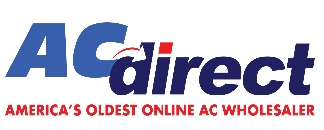How Often Should a Home Have its HVAC System Replaced?
-
 By
Michael Haines
By
Michael Haines
- Jun 12, 2024

Written by Michael Haines 06/12/2024 There isn't a one-size-fits-all answer for how often you should replace your HVAC system, but most recommendations say around 10-15 years. However, there are several signs that your system might need replacing sooner. Keeping an eye on these indicators can help you avoid sudden breakdowns and maintain a comfortable home environment.
Signs It's Time to Replace Your HVAC System
Age: If your system is over 10 years old, it's likely less efficient and may be nearing the end of its lifespan. Older systems often struggle to meet the performance standards of newer models and may not be as energy-efficient.
Performance Issues: If your HVAC system isn't heating or cooling your home adequately, or if you notice uneven temperatures across different rooms, it could be a sign that your system is failing. Poor performance can indicate problems with key components, which may be more costly to repair than replacing the system.
Increased Energy Bills: An aging HVAC system often uses more energy to maintain the same level of comfort. If you notice a significant increase in your energy bills, it could be due to an inefficient system that's working harder than it should.
Frequent Repairs: If you're constantly having to repair your HVAC system, it may be more cost-effective to replace it altogether. Frequent breakdowns not only cause inconvenience but also add up in repair costs, which could be invested in a new, more reliable system.
The Importance of a Reliable HVAC System
An inefficient or failing HVAC system can lead to uncomfortable temperatures, skyrocketing energy bills, and expensive repairs. Don't wait for a complete breakdown!
Here are 10 warning signs that your system might be ready for a replacement:
Warm Air or No Cool Air: If your AC blows warm air or struggles to cool your home, it could indicate a refrigerant leak, compressor issue, or other serious problem. Repairing an older system, especially one that uses the now-banned R-22 refrigerant, can be more expensive than investing in a new unit.
Poor Airflow: Weak airflow might be a simple fix like a clogged air filter, but it can also signal a larger issue like a failing motor or blower fan. Ignoring this problem can lead to higher energy bills and further damage to your system.
Strange Noises: Unusual sounds like banging, grinding, or whistling indicate something is wrong. These noises could be signs of loose parts, motor problems, or other malfunctions that require immediate attention.
High Humidity: If your home feels humid even when the AC is running, it could indicate a problem with your system's ability to remove moisture. This can lead to discomfort, mold growth, and other issues.
Foul Odors: Musty or burning smells can signal mold growth in the ductwork or electrical problems. Don't ignore these odors; they often indicate serious issues that require professional attention.
Leaks: While some condensation is normal, excessive leaking or pooling water around your unit can signal a clogged drain line, refrigerant leak, or other problem. Address leaks promptly to avoid water damage and costly repairs.
Short Cycling: If your system frequently turns on and off in short bursts, it's working harder than it should. This can strain the system and lead to premature failure.
Rising Energy Bills: A sudden spike in your energy bill could mean your system is struggling to keep up, especially if it's an older model. Upgrading to a newer, energy-efficient system can significantly lower your monthly costs.
Don’t Wait, Upgrade Today!
If you notice any of these signs, don't wait for a complete breakdown. Contact AC Direct today for a free consultation and learn how a new HVAC system can improve your comfort and lower those energy bills. We offer a wide variety of HVAC equipment to suit your needs, including air conditioning units, heating systems, and mini-split systems. Plus, with free shipping on orders over $1500 and flexible financing options, upgrading your HVAC system has never been easier.
Why Choose AC Direct?
At AC Direct, we pride ourselves on offering top-quality HVAC systems from leading manufacturers. We provide detailed product information and expert advice to help you choose the best system for your home.
Take advantage of our monthly HVAC specials and give your home the comfort it deserves! Our commitment to customer satisfaction and our comprehensive range of HVAC equipment make us the best choice for all your heating and cooling needs.
How often should a home have its HVAC system replaced?
Regularly assessing the performance of your HVAC system and being aware of the signs that indicate it might need replacement can save you from sudden breakdowns and high energy bills.
Typically, an HVAC system should be replaced every 10-15 years, but keeping an eye on its performance, energy efficiency, and repair frequency can help you decide when it's time for an upgrade. With AC Direct, upgrading your HVAC system is hassle-free and beneficial for both your comfort and your wallet.

 and now, NASCAR Racing Sponsor
and now, NASCAR Racing Sponsor










